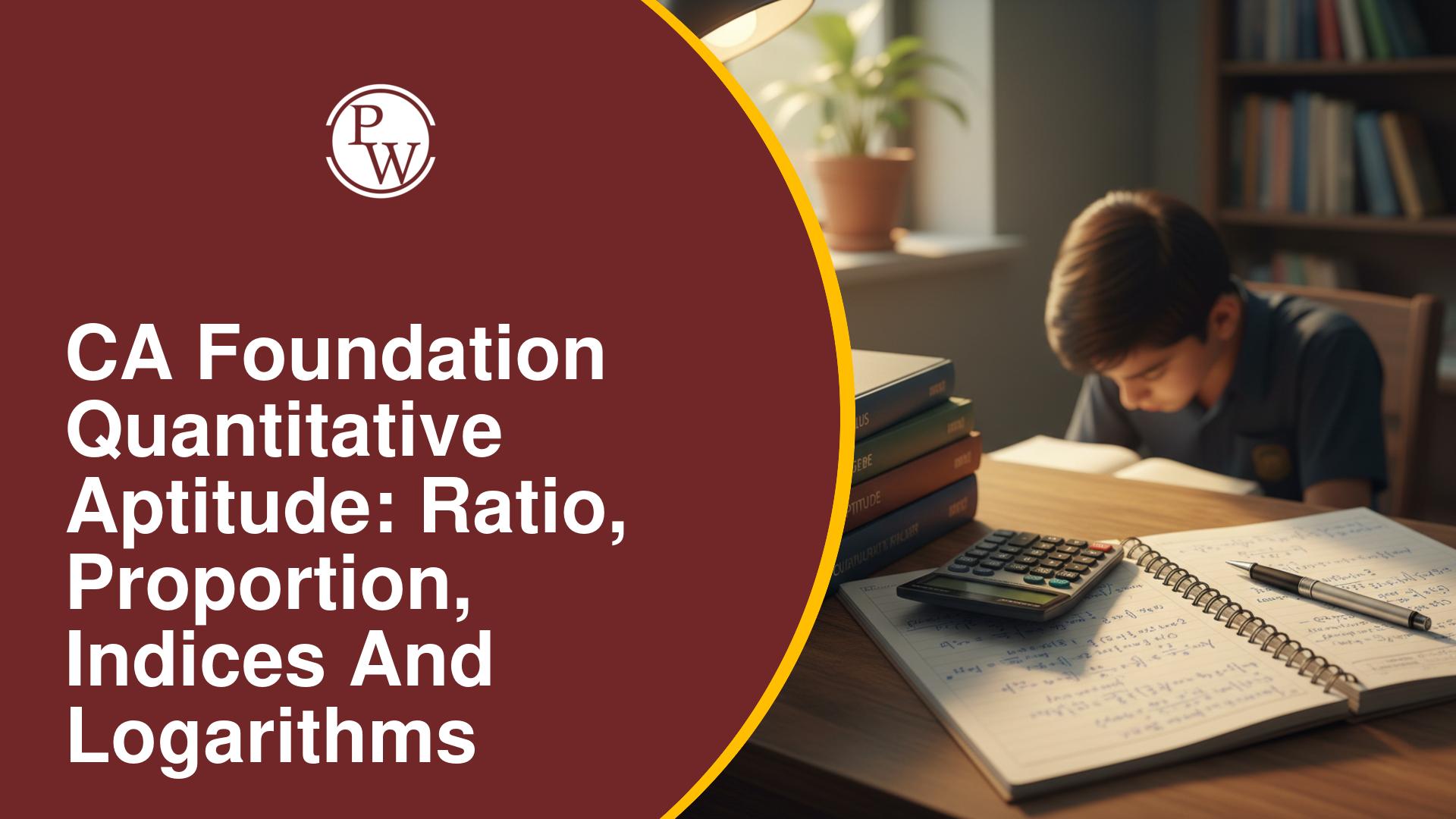
Accounting plays a pivotal role in every economic activity, serving as a tool to quantify, interpret, and report financial information. Accounting as a Measurement Discipline refers to the systematic process of assessing financial inputs and outputs to ensure transparency, accuracy, and accountability in financial reporting. For CA Exams , understanding this discipline is crucial to mastering the intricacies of financial management and compliance.
What Is Accounting as a Measurement Discipline?
Accounting as a Measurement Discipline refers to the systematic process of quantifying financial data to reflect an organization's economic activities accurately. This concept emphasizes the measurement of monetary inputs (like revenue and investments) and outputs (such as expenses and liabilities) to provide a transparent financial narrative. For example, when a company operates in a global market, its transactions often involve multiple currencies. To maintain consistency, the financial data is converted into the company's primary currency during measurement. This practice not only simplifies reporting but also ensures compliance with regional and international accounting standards. By integrating mathematical precision with observational analysis, accounting measurement enables businesses to make informed decisions based on comprehensive financial data. For CA students, mastering this concept is critical, as it forms the foundation of accurate financial reporting and valuation.Importance of Accounting as a Measurement Discipline
The significance of Accounting as a Measurement Discipline extends beyond routine bookkeeping. It serves as the backbone of financial analysis, offering the following advantages:- Standardized Reporting: By measuring financial data in universally accepted units, accounting ensures consistency and comparability across organizations.
- Informed Decision-Making: Reliable financial measurements aid businesses in making strategic decisions, such as investments or resource allocation.
- Regulatory Compliance: Measurement techniques align financial reports with regulatory requirements, minimizing legal risks.
- Forecasting and Planning: Accurate data enables businesses to predict future trends, optimize resources, and achieve financial stability.
Features of Accounting Measurement
Accounting as a Measurement Discipline encompasses various features that define its precision and effectiveness:Multi-Dimensional Measurement
It includes monetary metrics (e.g., currency), operational metrics (e.g., working hours), and quantitative metrics (e.g., units sold).Currency Conversion
Transactions in foreign currencies are converted into the active operational currency for uniformity in records.Versatile Calculation Methods
Measurements can be done using different bases like historical cost, present value, or realizable cost, depending on the context.Enhanced Accuracy
The integration of data from diverse sources ensures comprehensive and precise financial reports.Example in Action
Consider a company calculating profits. It might measure revenue based on units sold, while expenses are recorded as actual cash outflows. This hybrid measurement ensures every financial aspect aligns with the organization's goals.Measurement Bases of Accounting
Measurement bases in accounting form the foundation for evaluating financial transactions and presenting them accurately. These bases cater to different contexts, ensuring that financial data is both relevant and reliable. Here are the four key measurement bases used in Accounting as a Measurement Discipline:1. Historical Cost
The historical cost method records an asset or liability at its original acquisition price. This approach provides a consistent and objective valuation, as it relies on verifiable past data. However, it may not reflect current market values, especially in inflationary scenarios. For instance, a piece of machinery bought for $50,000 ten years ago will still be recorded at that price, even if its market value has significantly changed.2. Current Cost
Current cost represents the present-day value of an asset or liability. This method adjusts for inflation or market conditions, ensuring a realistic financial picture. For example, if a company purchases raw materials, the current cost would reflect the amount needed to replace those materials today.3. Realizable Value
The realizable value basis focuses on the cash or equivalents an entity would receive from selling an asset or settling a liability. This method is practical, emphasizing actual outcomes over theoretical calculations. For example, inventory is often measured at the price it can fetch in the market, ensuring relevance in financial reporting.4. Present Value
Present value accounts for the time value of money, discounting future cash flows to their current worth. This approach is crucial for long-term planning, such as calculating the value of a bond’s future payments today. Elevate your preparation for the CA Foundation Exam with PW CA Courses. Expert guidance, comprehensive materials, and strategic insights ensure your success in understanding Accounting as a Measurement Discipline and more. Start your journey to becoming a CA today!| Also Check | |
| Tax Evasion | Optimal Capital Structure |
| Impact of Economic Policies on Businesses | Impact of Globalization on Local Economies |
| Marginal Costing | Benefits of Standard Costing in Manufacturing |
Accounting Formulas for CA Foundation FAQs
What is the primary focus of accounting as a measurement discipline?
It focuses on quantifying financial data like assets, liabilities, and revenues to ensure transparency and informed decision-making.
Why is currency conversion important in accounting measurement?
It standardizes financial reporting by translating foreign transactions into the organization’s operating currency.
What are the bases of measurement in accounting?
The primary bases include historical cost, current cost, realizable value, and present value.
How does accounting measurement aid decision-making?
By providing accurate financial data, it helps businesses make strategic decisions, plan resources, and ensure compliance.
🔥 Trending Blogs
Talk to a counsellorHave doubts? Our support team will be happy to assist you!

Check out these Related Articles
Free Learning Resources
PW Books
Notes (Class 10-12)
PW Study Materials
Notes (Class 6-9)
Ncert Solutions
Govt Exams
Class 6th to 12th Online Courses
Govt Job Exams Courses
UPSC Coaching
Defence Exam Coaching
Gate Exam Coaching
Other Exams
Know about Physics Wallah
Physics Wallah is an Indian edtech platform that provides accessible & comprehensive learning experiences to students from Class 6th to postgraduate level. We also provide extensive NCERT solutions, sample paper, NEET, JEE Mains, BITSAT previous year papers & more such resources to students. Physics Wallah also caters to over 3.5 million registered students and over 78 lakh+ Youtube subscribers with 4.8 rating on its app.
We Stand Out because
We provide students with intensive courses with India’s qualified & experienced faculties & mentors. PW strives to make the learning experience comprehensive and accessible for students of all sections of society. We believe in empowering every single student who couldn't dream of a good career in engineering and medical field earlier.
Our Key Focus Areas
Physics Wallah's main focus is to make the learning experience as economical as possible for all students. With our affordable courses like Lakshya, Udaan and Arjuna and many others, we have been able to provide a platform for lakhs of aspirants. From providing Chemistry, Maths, Physics formula to giving e-books of eminent authors like RD Sharma, RS Aggarwal and Lakhmir Singh, PW focuses on every single student's need for preparation.
What Makes Us Different
Physics Wallah strives to develop a comprehensive pedagogical structure for students, where they get a state-of-the-art learning experience with study material and resources. Apart from catering students preparing for JEE Mains and NEET, PW also provides study material for each state board like Uttar Pradesh, Bihar, and others
Copyright © 2026 Physicswallah Limited All rights reserved.









